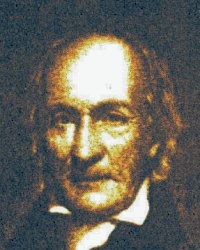I sometimes get angry at people, but usually I can control myself and not let it show. However, last week I displayed it for all to see. We had our caucuses in Colorado. When the head of our party in our precinct said he would not vote for a candidate he didn’t like, I lost it. In a two party system, EVERYONE should vote, and it should be a party vote not a person vote! AT LEAST THAT’S WHAT I THOUGHT.
On the way home, my wife reminded me that God is sovereign and in control. Nothing happens outside of His will. Then, at 2 a.m., that bit of wisdom woke me up. What does scripture say about voting? This missive will focus on two scriptures that struck me in the middle of the night.
In his dedication to Parliament at the front of “Ill Newes From New England,” John Clarke states the Lord Jesus has been given all power in Earth and has chosen to wield that power by a “two fold administration of power suitable to the two fold state or being of man.” Baptists at that time used Matthew 22:21 (Render unto Caesar…) to support this position. We live in a world that has both a “Caesar” side and a “spiritual” side. In a Republic like ours, voting is in the former. So, a Christian should be able to vote using good sense. In fact, God puts in place governments and our participation is a responsibility. Ah-ha! Support for my contention.
BUT, not so fast. Romans 14 came to mind. So, turned a few pages further on and read verses 2-14: One person has faith that he may eat all things, but he who is weak eats vegetables only. 3 The one who eats is not to regard with contempt the one who does not eat, and the one who does not eat is not to judge the one who eats, for God has accepted him….5 One person regards one day above another, another regards every day alike. Each person must be fully convinced in his own mind. 6 He who observes the day, observes it for the Lord, and he who eats, does so for the Lord, for he gives thanks to God; and he who eats not, for the Lord he does not eat, and gives thanks to God….13 Therefore let us not judge one another anymore, but rather determine this—not to put an obstacle or a stumbling block in a brother’s way. 14 I know and am convinced in the Lord Jesus that nothing is unclean in itself; but to him who thinks anything to be unclean, to him it is unclean.
I submit that eating or observance of days can be extrapolated to voting.
- In a party-based system, every vote counts. A Republican or Democrat that refuses to vote because they don’t like the candidate has cast a vote FOR the opposing party.
- Someone who has made his/her vote a test of their faith should stand firm if they choose not to vote.
- However, such a person should not participate in the leadership of the political process and refuse to vote. (In my next post I will address the question, “Is he/she a Daniel or a Pharisee”?
As always, feedback is welcomed.

